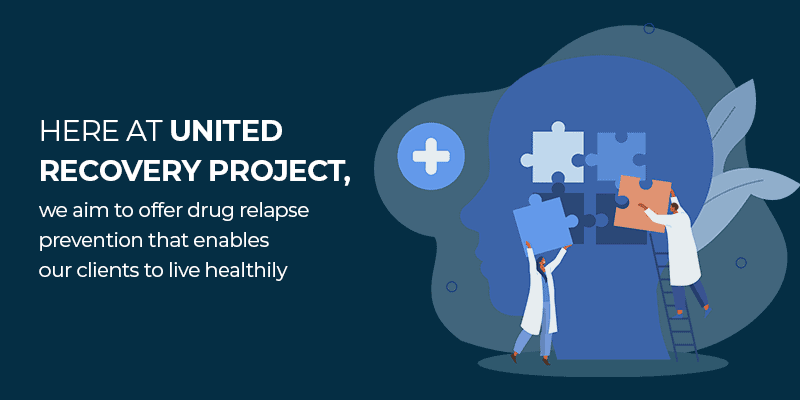Drug Relapse Prevention in New Jersey
Table of Contents
Drug and alcohol addiction recovery isn’t a short-term endeavor. Overcoming drugs and alcohol requires a lifelong commitment, and there’s not often a clear path to the finish line. Some people avoid substances after rehab, but others resort to their old ways when life becomes difficult. You may feel like relapsing is equivalent to wiping out all your progress during treatment. However, that’s not the case. Reusing drugs and alcohol is merely one step back on the road to long-term recovery. Relapse happens to the best of us, and you can continue to move forward after one (or multiple) hiccups. You should never lose sight of your ultimate goal: a life free of substance abuse. Fortunately, many substance abuse treatment programs offer drug relapse prevention. Drug relapse prevention aims to teach recovering addicts healthy coping mechanisms to overcome triggers and negative emotions. Instead of reusing drugs and alcohol, these individuals can put their best foot forward and avoid returning to their old ways.

A Glance At Drug Addiction In New Jersey
Drug and alcohol addiction is widespread across the United States, and New Jersey is no exception. According to the State of New Jersey Department of Human Services, more than 82,000 New Jerseyans receive treatment for substance abuse disorders annually. Of those suffering from drug addiction in New Jersey, 25% fall between the ages of 35 and 44, 18% between 30 and 34, and 18% between 45 and 54. In addition, 16% of the individuals suffering from substance abuse in New Jersey are between the ages of 25 – 29. The most common substances abused in New Jersey include alcohol, heroin, other opiates, and cocaine. Many individuals suffering from substance abuse disorder in New Jersey receive outpatient or intensive outpatient care or participate in a partial hospitalization program. While New Jersey doesn’t publish relapse rates, a reasonable estimate is that around one-third of recovering addicts relapse within their first year after rehab.
Fortunately, relapse doesn’t happen in the blink of an eye. There are various telltale signs that you might be experiencing or on the verge of relapse. However, everyone experiences relapse differently. For instance, some people could relapse in a matter of days. But, it could take others several months before they physically start to use substances again. Knowing the signs of a relapse can help you avoid succumbing to your ways. You should also maintain a support group and stay in contact with a therapist. These individuals may be able to identify signs of relapse before you and prevent it in its tracks.
The Stages Of Drug Addiction Relapse
As mentioned, drug addiction relapse generally happens throughout a couple of weeks to a few months. You’ll experience various stages of drug addiction relapse before you use drugs and alcohol. Here’s a glance at each stage and its characteristics:
- Emotional relapse: While it’s normal to feel the “blues,” persistent negative emotions could indicate that you’re suffering from depression. Depressive disorders are common amongst recovering addicts, but they could also mean the first stage of relapse: emotional relapse. During an emotional relapse, individuals may have pervasive thoughts that hinder their overall well-being. These feelings eventually become overwhelming, causing them to neglect their self-care and fall out of their daily routine. Your peers may notice something is off, even though you haven’t started using substances again.
- Mental relapse: The second stage of relapse is mental relapse. Mental relapse is similar to emotional relapse but much more prominent. Your thoughts will become even more overwhelming, and you’ll find it hard to function. Getting out of bed daily and going to work or school will become a chore. During a mental relapse, recovering addicts fantasize about using substances. For instance, you might feel so depressed that you tell yourself, “I have nothing to lose.” With this mindset, you can easily take a step backward and erase much of your progress. You may think, “I’ll just have one hit or drink,” but before you know it, you’ll become a full-fledged addict again.
- Physical relapse: Physical relapse occurs when you use substances again. These substances give you the “euphoric” feeling that you long for while simultaneously allowing you to suppress your emotions. Unfortunately, it won’t take long before the side effects of your substance abuse disorder outweigh the impact of emotional and mental relapse. For example, you may experience increased anxiety or lose your job because you can’t function sober. By this point, your emotional distress became overbearing, and you resorted to drugs and alcohol instead of practicing healthy coping mechanisms.
If you’re experiencing the common signs of drug relapse, you should seek treatment in a Luxury Rehab drug relapse prevention program. Rehabilitation centres won’t judge you for relapsing, and you’ll be able to pick yourself back up before you know it!
What Is Drug Relapse Prevention?
Relapse prevention generally consists of skills that recovering addicts use to prevent reusing substances. In addition, relapse prevention involves learning healthy coping mechanisms to overcome stressors and triggers. Many individuals also participate in ongoing therapy, attend drug addiction alumni programs, and participate in a support group to help maintain long-term sobriety.
Techniques used as a part of relapse prevention include:
- Meditation
- Self-care
- Recognition HALT (Hungry, Angry, Lonely, and Tired)
- Exercise
- Reading
- Practising spirituality
Clients who participate in the United Recovery Project drug relapse prevention will have valuable resources that enable them to overcome whatever life throws in their direction.
Drug Relapse Prevention At United Recovery Project
If you or someone you know is experiencing drug relapse, please contact us today! We can help you avoid a relapse or bounce back. Remember, relapsing doesn’t mean you failed. Choose United Recovery Project for leading drug relapse prevention!
- Programs
- Women’s Detox Program
- Prescription Drug Detox Program
- Opioid Detox Program
- Opiate Detox Program
- Men’s Detox Program
- Meth Detox Program
- Medical Detox Program
- Holistic Detox Program
- Heroin Detox Program
- Drug Detox Program
- Relapse Prevention
- Psychotherapy Program
- Nutritional Education
- LGBTQ-Friendly Program
- Group Therapy
- Dialectical Behavior Therapy
- Cognitive-Behavioral Therapy
- Anger Management Therapy And Substance Abuse Detox
- 12 Step
- Detox Therapy Programs
- Alcohol Detox Program
- Cocaine Detox Program
- Benzo Detox Program
- Women’s Rehab Center
- Transitional Living Program
- Transitional Living Program
- Sober Living Homes
- Residential Rehab Programs
- Residential Addiction Rehab
- United Recovery Project | Drug Relapse Prevention
- Alcohol Detox Center
- Alcohol Detox Center
- Rehab Alumni Program
- Rehab Aftercare Program
- Rehab Aftercare Program
- Partial Hospitalization Program
- Outpatient Drug and Alcohol Rehab
- Medical Detox Center
- Intensive Outpatient Program (IOP)
- Holistic Drug Detox
- Heroin Detox Center
- Heroin Detox Center
- Dual Diagnosis Programs in New Jersey
- Drug Relapse Prevention in New Jersey
- Dual Diagnosis Programs in New York
- Drug Relapse Prevention in New York
- Dual Diagnosis Programs
- Drug Relapse Prevention
- Drug Relapse Prevention
- Rehab Alumni Program
- Alcohol and Drug Addiction Aftercare Programs
- Women’s Rehab Center
- Sober Living Homes
- Residential Rehab Programs
- Dual Diagnosis Programs
- Outpatient Drug and Alcohol Rehab
- Intensive Outpatient Program (IOP) For Addiction
- Partial Hospitalization Program (PHP)
- Residential Addiction Rehab
- Holistic Drug Detox
- Medical Detox Center
